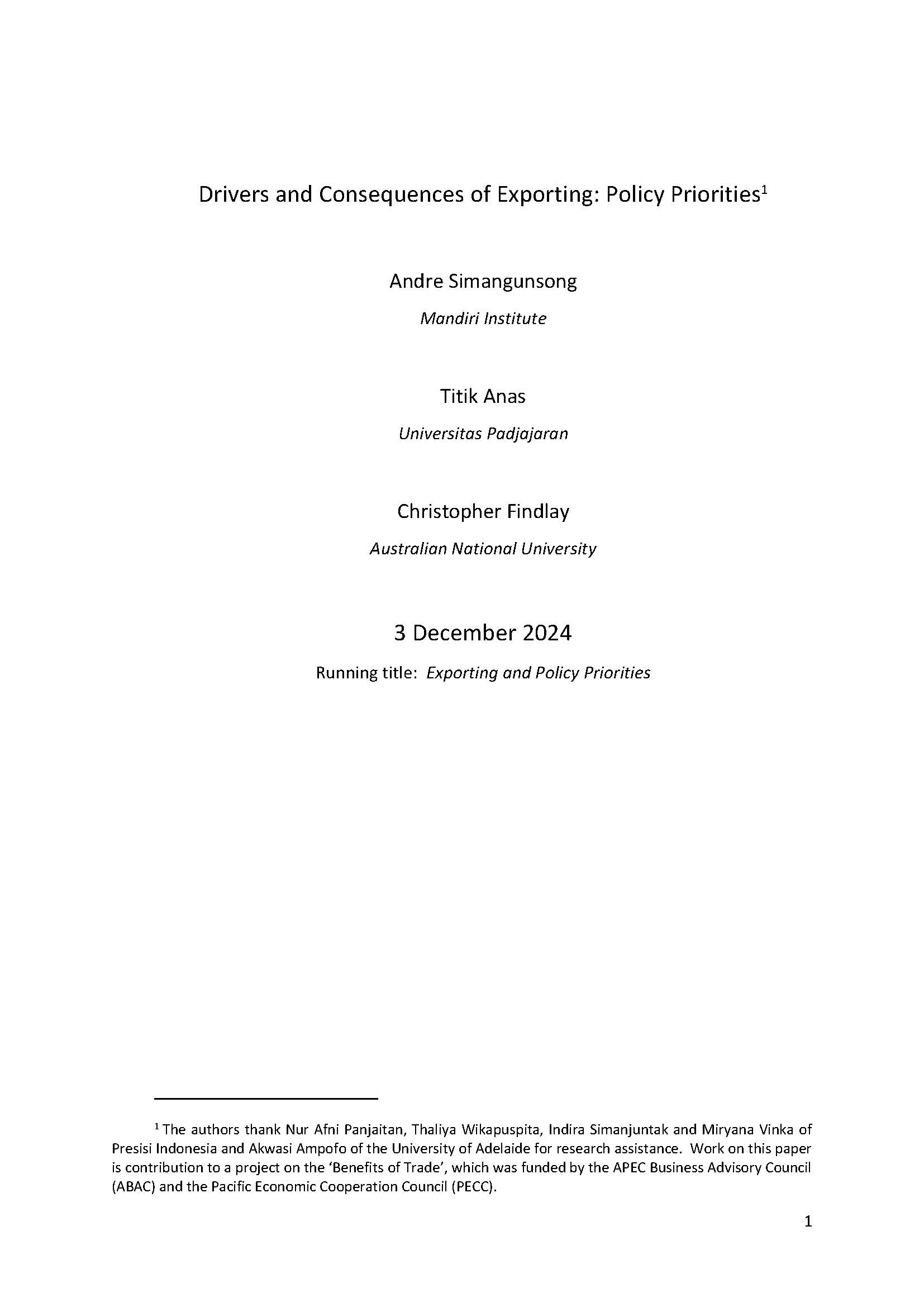 December 2024 – A new policy brief by Andre Simangunsong, Titik Anas, and Christopher Findlay highlights the need for a shift from traditional export promotion to export facilitation as a more effective strategy for enhancing global trade competitiveness.
December 2024 – A new policy brief by Andre Simangunsong, Titik Anas, and Christopher Findlay highlights the need for a shift from traditional export promotion to export facilitation as a more effective strategy for enhancing global trade competitiveness.
Key Findings
- Who Exports? A small percentage of firms dominate exports, with the most productive and larger firms more likely to participate in global trade. Factors such as human capital, foreign ownership, and the institutional environment significantly influence export decisions.
- Export Sustainability Issues Many firms exit export markets within a few years, often due to uncertainty, financing constraints, and difficulty in forming stable trade partnerships.
- Trade and Productivity Exporting enhances firm productivity through larger market access, knowledge transfer, and access to better inputs. Firms that both import and export tend to be the most productive.
- Exporting and Wages Firms that engage in exporting tend to pay higher wages, reflecting their higher productivity and demand for skilled labor.
Policy Recommendations
- Trade Facilitation Over Promotion – Reducing trade costs through streamlined customs procedures and better infrastructure benefits all firms, not just select exporters.
- Foreign Direct Investment (FDI) Liberalization – Encouraging foreign participation boosts productivity, knowledge transfer, and export capacity.
- Services Sector Reform – Strengthening key services like logistics and finance improves export competitiveness.
- Tariff Reductions – Lowering input tariffs enhances firm productivity, leading to greater competitiveness.
- Institutional Strengthening – Improved contract enforcement and rule of law support sustained export growth.
- Human Capital Development – Investing in workforce skills fosters innovation and global competitiveness.
Export Promotion vs. Facilitation
While export promotion programs offer limited benefits, export facilitation—by reducing trade barriers and improving efficiency—provides more widespread and sustainable economic gains. The report underscores the need for policies that enhance overall trade competitiveness rather than short-term promotional efforts.
Conclusion
The authors argue that a well-functioning trade ecosystem, driven by productivity growth and efficient policies, will yield long-term economic benefits. By focusing on facilitation rather than direct promotion, governments can better support firms in competing globally.
(Click here to download the paper)

 December 2024 – A new policy brief by Andre Simangunsong, Titik Anas, and Christopher Findlay highlights the need for a shift from traditional export promotion to export facilitation as a more effective strategy for enhancing global trade competitiveness.
December 2024 – A new policy brief by Andre Simangunsong, Titik Anas, and Christopher Findlay highlights the need for a shift from traditional export promotion to export facilitation as a more effective strategy for enhancing global trade competitiveness.